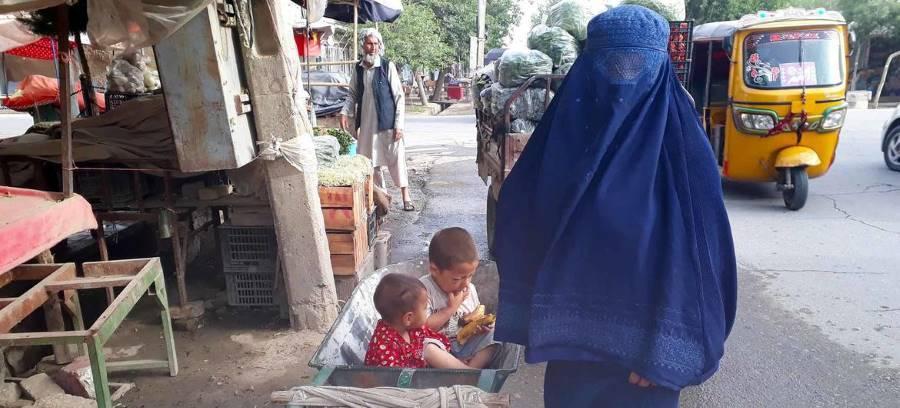UNAMA’s report says that, there was a “lack of clear delineation of responsibilities” with regard to gender-based-violence complaints.
Afghan officials have, for the first time, admitted to protective imprisonment of women. They have admitted to imprisoning women, ostensibly to save them from violence.
This is detailed in a report published by the United Nations’ Assistance Mission in Afghanistan (UNAMA). The report, titled, ‘Divergence of Practice: The Handling of Complaints of Gender-Based Violence against Women and Girls by Afghanistan’s de facto Authorities’, says that the Taliban have been putting Afghan women in prison for protecting them from violence.
“Some de facto officials stated that in instances where they had safety concerns for a survivor, she would be sent to the women’s prison, for her protection, akin to how prisons have been used to accommodate drug addicts and homeless people in Kabul.”
Speaking of the Taliban authorities’ discriminatory policies towards women and girls, it says that their policies have manifested particularly in their right to access education (restricted to education below grade seven as well as reportedly in madrassas after primary school), freedom of movement, freedom of peaceful assembly, freedom of opinion and expression (including choice of dress), employment (limited to the health sector, primary education, security at the airports, some segments of the manufacturing sector, some women’s businesses and some peripheral functions within the de facto police), and participation in public and political life.
Protection centres eliminated
The report says, “Taken together, the Afghanistan context after the Taliban takeover and the discriminatory restrictions imposed on women and girls further heightens their vulnerability to gender-based violence, both in the public and private sphere. The latter includes domestic and intimate partner violence given women and girls’ increasing relegation to their homes.”
The report published on December 14 says that the Taliban has eliminated the country’s 23 state protection centers for women because, as some officials said, “women’s shelters are a Western concept.”
“Some de facto officials stated that in instances where they had safety concerns for a survivor, she would be sent to the women’s prison, for her protection, akin to how prisons have been used to accommodate drug addicts and homeless people in Kabul,” the report said, stating that women sent to prison as a means of sheltering them either for the purpose of their safety from conditions of domestic violence or because they have no male relatives to stay with.

Traditional dispute-resolution mechanisms preferred
The report quotes an official of the Southern region’s of the department of justice who says, “The Islamic Emirate does not have any shelter for women. They must be with their husbands or other male family members – their mahram.”
Western officials and activists have expressed concerns over the state of women’s rights under the conservative Taliban rulers and its leadership – teenage girls have been stopped from pursuing education, women are banned from employment in most sectors and are discouraged from leaving their homes.
Authorities have often violently put down protests by Afghan women over their lack of rights and hundreds have been imprisoned for their “illegal” protests.
UNAMA’s report says that, there was a “lack of clear delineation of responsibilities” with regard to gender-based-violence complaints. It says that “referrals between entities creates a gap in accountability for justice actors and makes it difficult for women and girls to know which entity to approach when they have a gender-based violence complaint.”
“The situation is compounded by the handling of gender-based-violence complaints predominantly by male personnel of the de facto law enforcement and justice institutions. Many survivors reportedly prefer seeking redress through traditional dispute-resolution mechanisms because of fear of the de facto authorities,” it added.

